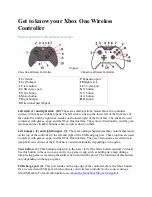
3
Operation
3
SECTION 3 – OPERATION
3.1 – Measuring Temperature
Before starting to measure temperature, make sure the following check list is met:
U
The Power and output connections are made (Fig 2-1)
U
The target is larger than the optical field of view of the transmitter (Fig 3-1)
U
Use the Laser Sighting accessory (Optional), to align the transmitter to the
center of the target area.
U
The Emissivity is fixed at 0.95. No adjustment is necessary. If the target
Emissivity is less than 0.95, you can place a masking tape or paint the target
area with flat black paint to raise the surface Emissivity to 0.95.
U
Make sure the output load is within the product specification.
Figure 3-1. Optical Field of View
3.2 – Ambient Temperature
The transmitter can operate in an ambient temperature of 0 to 70°C (32 to 158°F)
without any water cool jacket. It can operate from 0 to 200°C (32 to 392°F) with
the water cool jacket accessory, OS136-WC (Fig 3-5 & 3-6). It can operate up to
110°C (230°F) with air cooling.
There is a warm up period of 1 to 2 minutes after power up. After the warm up
period, temperature measurement can be made.
When the ambient temperature around the transmitter changes abruptly, the sensor
head goes through a thermal shock. It takes a certain amount of time for the sensor
head to get stabilized to the new ambient temperature. For example, it takes about
30 minutes for the transmitter to stabilize from 25°C to 50°C ambient temperature.
SPOT
DIA.* (CM)
SPOT
DIA.* (IN)
DISTANCE: SENSOR TO OBJECT (IN)
D:S=6:1
1cm@0
0
20
3.3
40
6.6
60
10.0
80
13.0
100
16.0
122
20.0
0.4"@0"
2.0"
1.0"
4.0"
6.0"
8.0"
48"
36"
24"
12"
6"
0"
DISTANCE: SENSOR TO OBJECT (CM)
* SPOT DIAMETER MEASURED AT 90% ENERGY


































